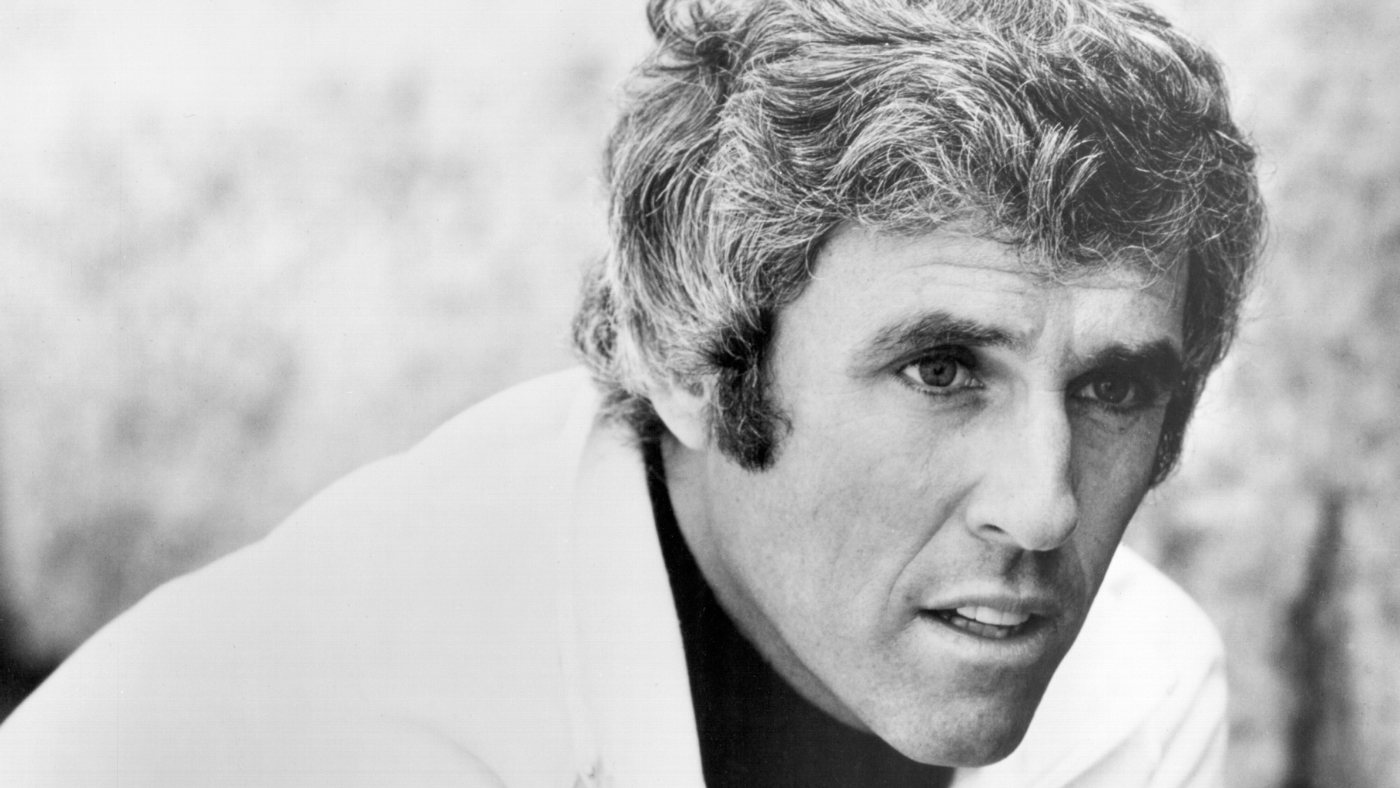Burt Bacharach obituary: accomplished musician behind countless pop classics
Songwriter behind an astonishing array of hits has died aged 94

A free daily email with the biggest news stories of the day – and the best features from TheWeek.com
You are now subscribed
Your newsletter sign-up was successful
Burt Bacharach, who has died aged 94, formed, with the lyricist Hal David, the most “accomplished American songwriting team since George and Ira Gershwin”, said The Daily Telegraph.
Together, they were responsible for an astonishing array of classic songs: What the World Needs Now Is Love; I Say a Little Prayer; Do You Know the Way to San Jose; Walk On By; Make It Easy on Yourself; Twenty Four Hours from Tulsa; This Girl’s In Love With You; Alfie; The Look of Love, and more.
Their songs were recorded by everyone from Aretha Franklin to Cilla Black and Dusty Springfield, but the singer that Bacharach described as “our artist, our flagship” was Dionne Warwick. Her voice, he said, has “the delicacy and mystery of sailing ships in bottles”.
The Week
Escape your echo chamber. Get the facts behind the news, plus analysis from multiple perspectives.

Sign up for The Week's Free Newsletters
From our morning news briefing to a weekly Good News Newsletter, get the best of The Week delivered directly to your inbox.
From our morning news briefing to a weekly Good News Newsletter, get the best of The Week delivered directly to your inbox.
Bacharach’s music was sometimes dismissed as easy listening; and his songs, often tinged with regret, were certainly mellifluous and lushly orchestrated; but they were seldom easy, said Alexis Petridis in The Guardian: Bacharach “dealt in changing meters, odd harmonic shifts, umpteen idiosyncrasies that were perhaps the result of [an] eclectic musical education, which variously took in studying classical music under the French composer Darius Milhaud, listening to bebop musicians in the jazz clubs of New York’s 52nd Street, and hanging out with avant-gardist John Cage”.
His music was impossible to classify because it was “genuinely sui generis”: it could be recorded by rock bands, “mum-friendly crooners”, soul singers and jazz musicians.
Born in Kansas City, Missouri, in 1928, Burt Bacharach was brought up in New York, where his father was a journalist. He learnt the piano, and in his teens started sneaking into jazz clubs. He studied music theory at McGill University, and after military service he found work as an accompanist.
Deciding that he could write better songs than those he was playing, he teamed up with Mack David, and had some success. Then he started working with Mack’s brother Hal, and in 1958, they hit the big time with Magic Moments for Perry Como. In the late 1950s, he toured with Marlene Dietrich; then in 1961, he met Warwick, and revived his collaboration with David. The trio went on to have 33 US chart entries.
A free daily email with the biggest news stories of the day – and the best features from TheWeek.com
A perfectionist, who liked to say that his compositions should be easy for the listener, not for the singer, Bacharach fell out with David and Warwick in the 1970s. He also split up with his second wife, the actress Angie Dickinson.
His profile waned, but his career was not over: in 1981 he won a second best song Oscar for his theme for Arthur, co-written with the third of his four wives, Carole Bayer Sager. (His first was for Raindrops Keep Fallin’ on My Head from Butch Cassidy and the Sundance Kid.) And in the 1990s, he sent up his image as a 1960s smoothie in the Austin Powers films. He played Glastonbury in 2015, and he toured into his 90s.
-
 How to Get to Heaven from Belfast: a ‘highly entertaining ride’
How to Get to Heaven from Belfast: a ‘highly entertaining ride’The Week Recommends Mystery-comedy from the creator of Derry Girls should be ‘your new binge-watch’
-
 The 8 best TV shows of the 1960s
The 8 best TV shows of the 1960sThe standout shows of this decade take viewers from outer space to the Wild West
-
 Microdramas are booming
Microdramas are boomingUnder the radar Scroll to watch a whole movie
-
 6 exquisite homes with vast acreage
6 exquisite homes with vast acreageFeature Featuring an off-the-grid contemporary home in New Mexico and lakefront farmhouse in Massachusetts
-
 Film reviews: ‘Wuthering Heights,’ ‘Good Luck, Have Fun, Don’t Die,’ and ‘Sirat’
Film reviews: ‘Wuthering Heights,’ ‘Good Luck, Have Fun, Don’t Die,’ and ‘Sirat’Feature An inconvenient love torments a would-be couple, a gonzo time traveler seeks to save humanity from AI, and a father’s desperate search goes deeply sideways
-
 A thrilling foodie city in northern Japan
A thrilling foodie city in northern JapanThe Week Recommends The food scene here is ‘unspoilt’ and ‘fun’
-
 Tourangelle-style pork with prunes recipe
Tourangelle-style pork with prunes recipeThe Week Recommends This traditional, rustic dish is a French classic
-
 Samurai: a ‘blockbuster’ display of Japan’s legendary warriors
Samurai: a ‘blockbuster’ display of Japan’s legendary warriorsThe Week Recommends British Museum show offers a ‘scintillating journey’ through ‘a world of gore, power and artistic beauty’
-
 BMW iX3: a ‘revolution’ for the German car brand
BMW iX3: a ‘revolution’ for the German car brandThe Week Recommends The electric SUV promises a ‘great balance between ride comfort and driving fun’
-
 Arcadia: Tom Stoppard’s ‘masterpiece’ makes a ‘triumphant’ return
Arcadia: Tom Stoppard’s ‘masterpiece’ makes a ‘triumphant’ returnThe Week Recommends Carrie Cracknell’s revival at the Old Vic ‘grips like a thriller’
-
 My Father’s Shadow: a ‘magically nimble’ love letter to Lagos
My Father’s Shadow: a ‘magically nimble’ love letter to LagosThe Week Recommends Akinola Davies Jr’s touching and ‘tender’ tale of two brothers in 1990s Nigeria